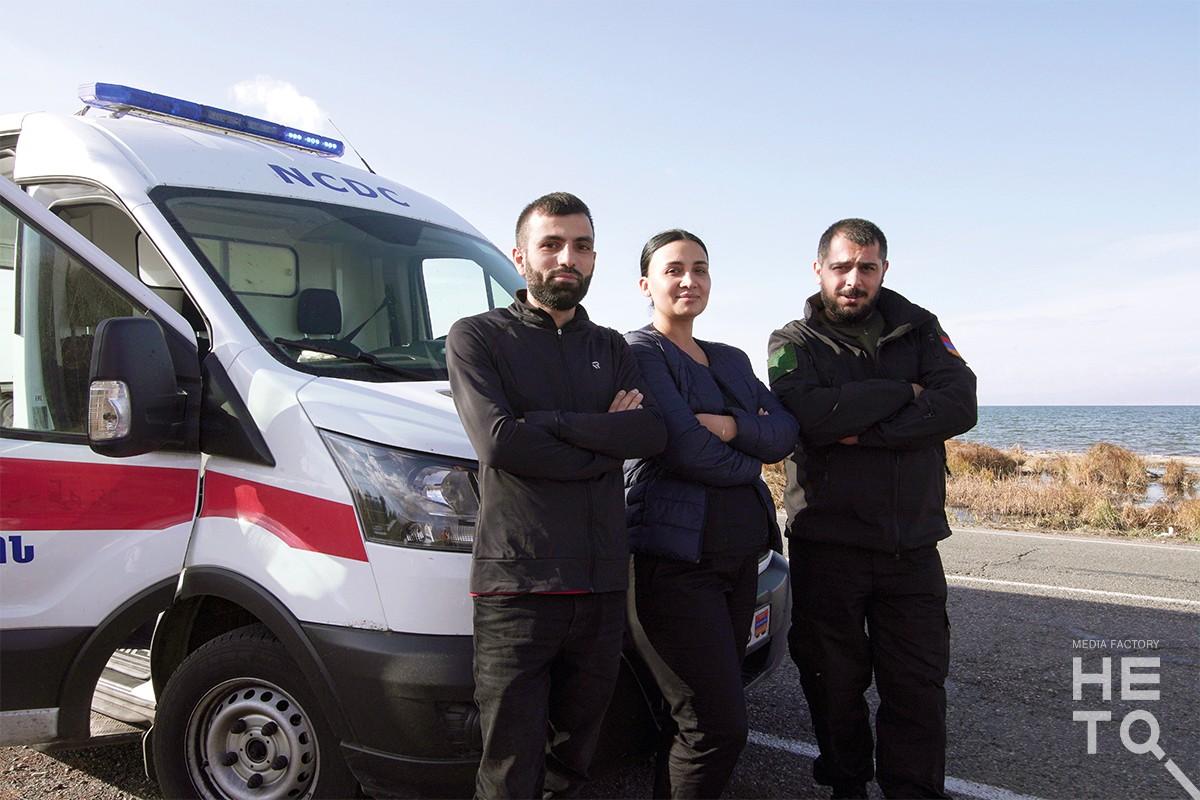
First Aid Workers During the War
During the past 45 days of the Artsakh war, ambulances were operating on the Yerevan-Stepanakert highway with clockwork precision, rushing soldiers who had been wounded on the battlefield to hospitals in Armenia.
The ambulance doctors and drivers volunteered for the dangerous and stressful task. They made the 6-7 hour trip several times a day, taking wounded soldiers to hospitals, regardless of the hour or the intensity of shelling and frequency of air sirens.
Our crew joined one of the brigades leaving for Artsakh to report on their work.
Anahit Hunanyan, a radiologist, works at Yerevan's Surb Astvatsamayr Medical Center, which has been refitted to treat Covid-19 patients. She has been working in emergency mode since the outbreak of the pandemic. As soon as the war broke out, she registered as a volunteer and left for Artsakh on her days off. She says that during the last month she has seen her eight-year-old son for brief periods only, when the boy is asleep or waking up. “It’s alright, he is used to it. He knows it is necessary”, says Hunanyan.
Hunanyan started to prepare us for the work ahead while we were still on the road. “You know right, that as soon as we see something the car will stop. All of us have to open the doors quickly, leave the vehicle, and try to take shelter in a safe place”.
We had not reached Stepanakert when our car stopped. We did as instructed. After taking shelter in the dark for a few minutes, we heard the driver’s voice, “let’s go”. As soon as we entered the Artsakh capital, the air sirens went off. The car stopped again, we took shelter, and soon moved on.
The doctors did not want to waste a single minute on the road. The wounded had to be taken to hospital.
“A good team is important. I feel strong with my teammates”, says Hunanyan, looking in the direction of the boys.
Manvel Martirosyan, a nurse and resident, is always calm. He smiles even during the most stressful of times. He tells us that we can’t write anything about him because he won't talk. Indeed, during the two days that we spent with the brigade, Martirosyan barely spoke.
Ambulance driver Arman Hayrapetyan was also a man of few words. For months, he's been working at Yerevan's National Center for Disease Control in emergency mode. Hayrapetyan seemed to be constantly alert for everyone’s safety.
After taking the wounded soldiers to the hospital, Hayrapetyan takes Anahit, and then Manvel home, at dawn. He then goes home himself. In the morning, he will hug his three children, then hurry off to work again.
Ani Ghulinyan, Sona Nersesyan
Translation by Hranoush Dermoyan
Hetq Media Factory
 Videos
Videos Photos
Photos
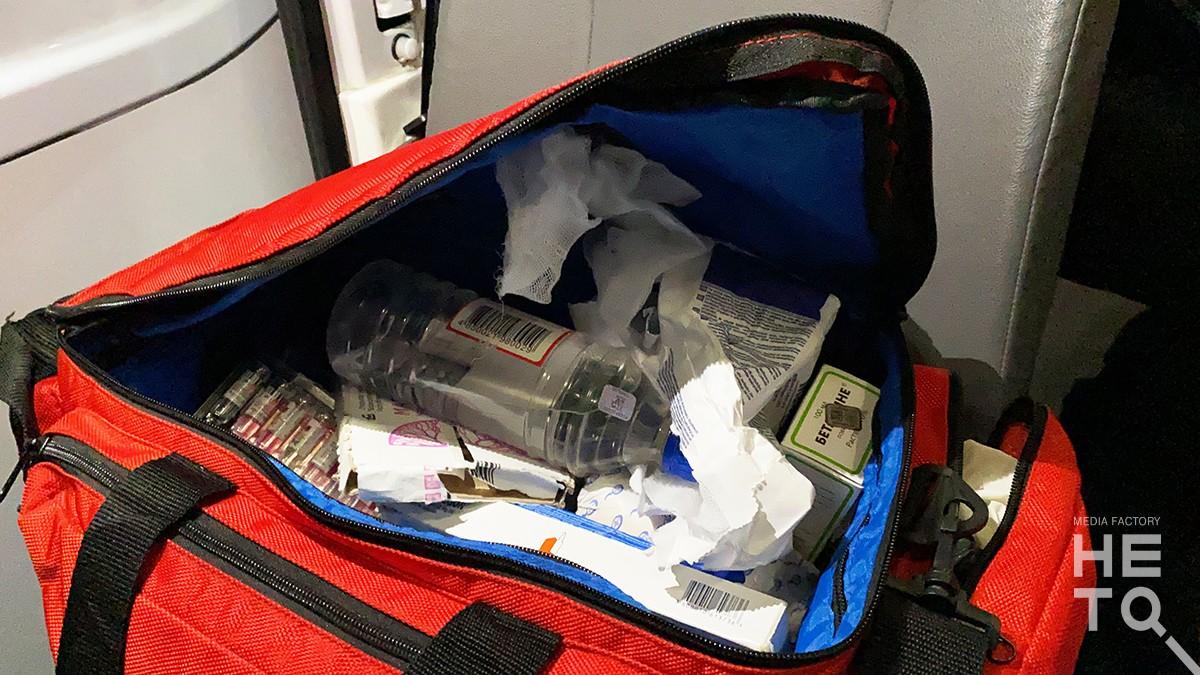
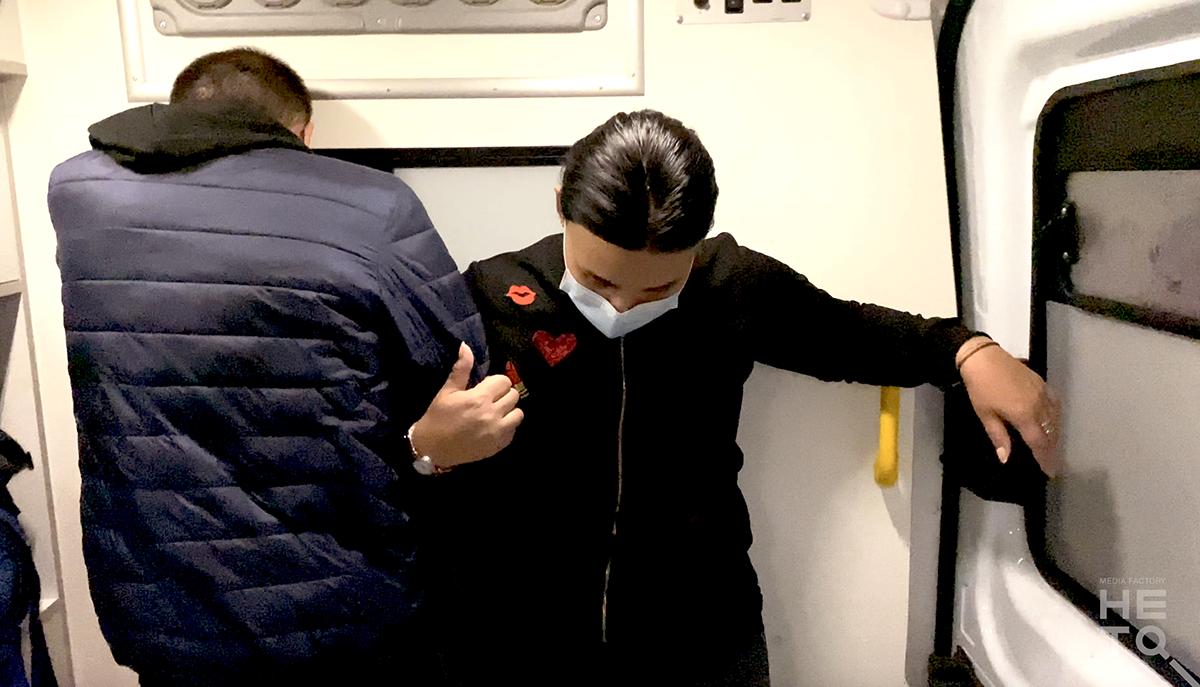
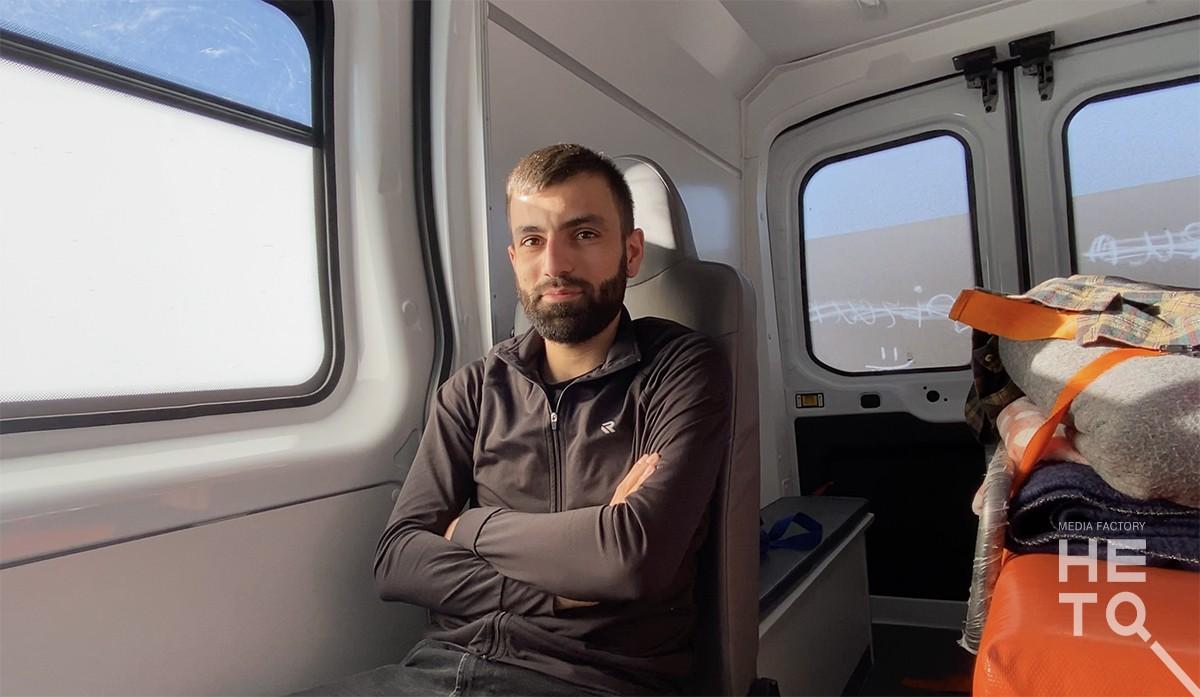
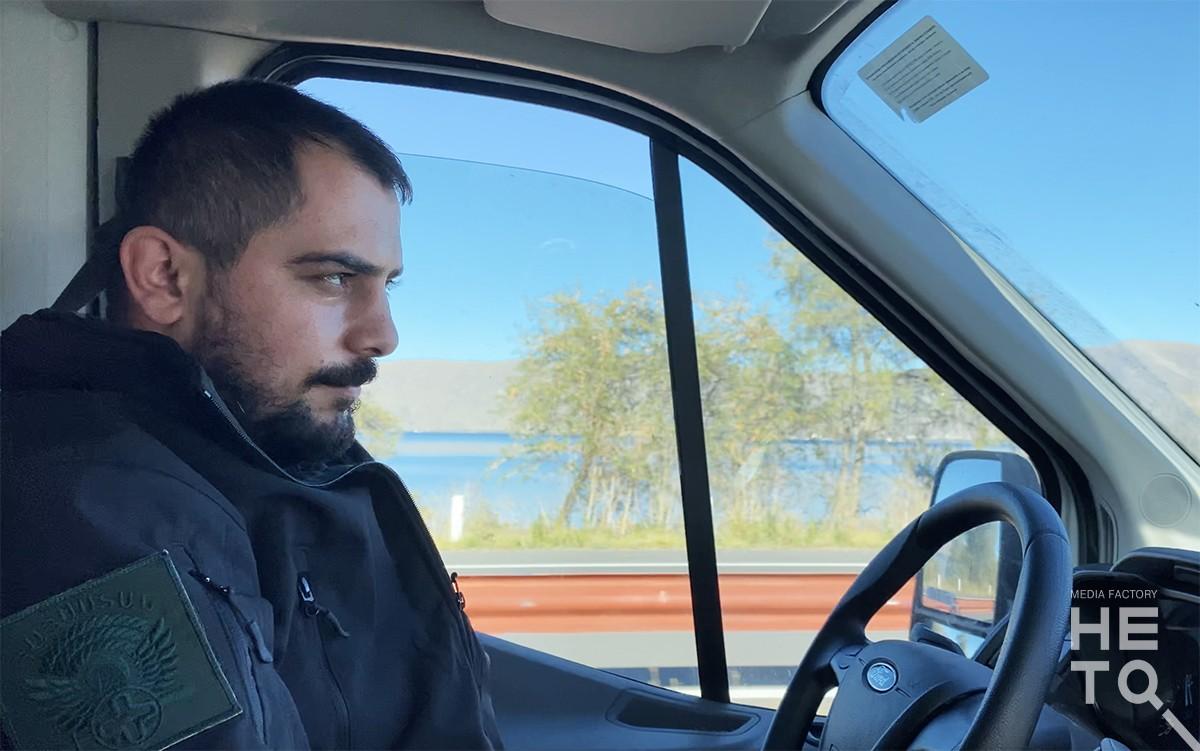
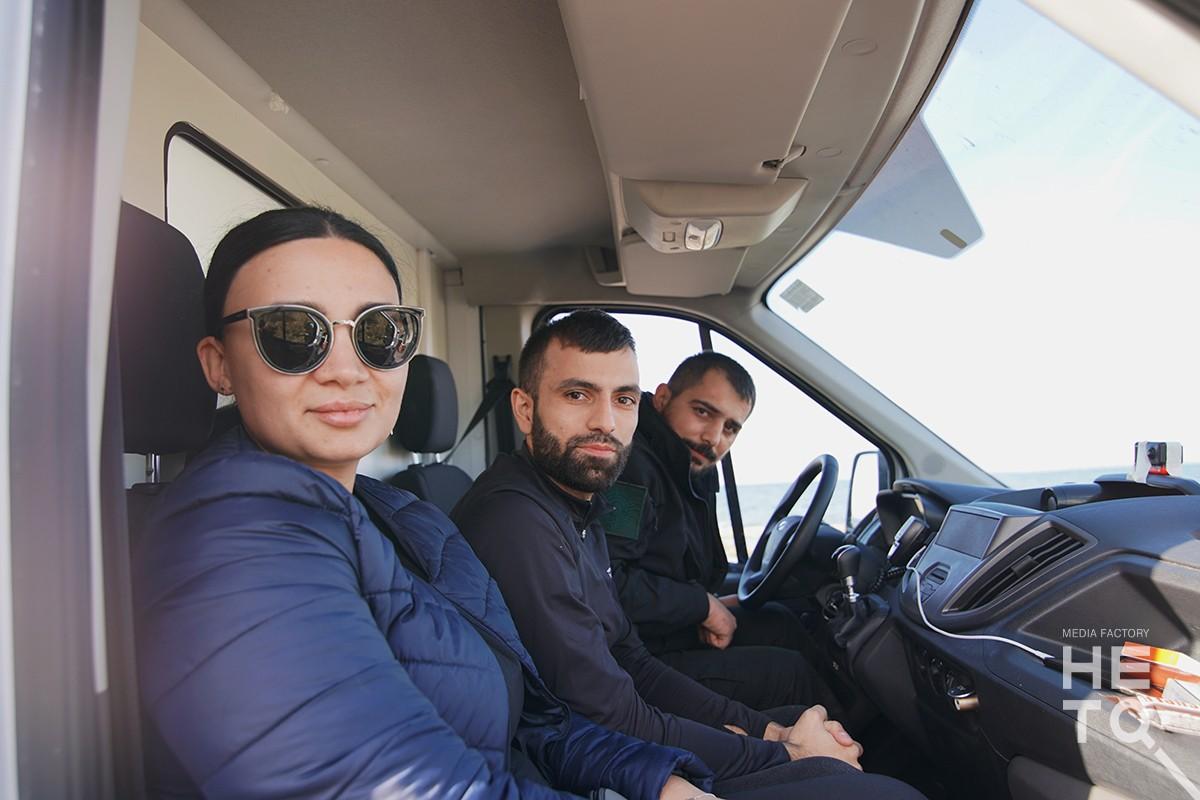
Comments (2)
Write a comment